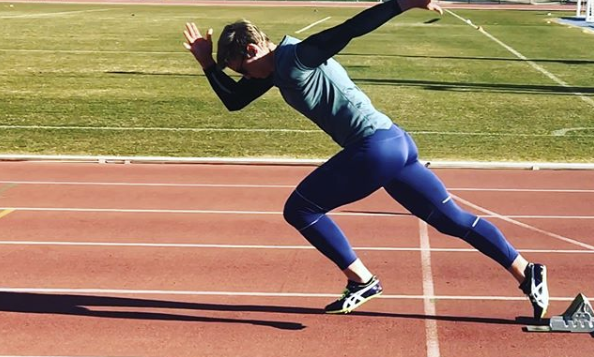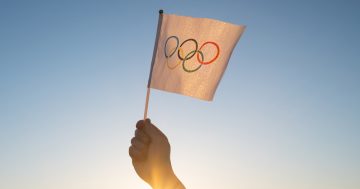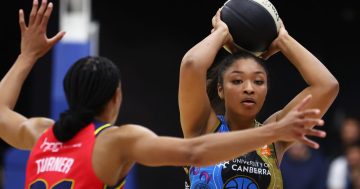
Melissa Breen is in training for the Tokyo Olympics … but will the Games go ahead? Photo: Melissa Breen Instagram.
As the July start to the Tokyo Olympics looms, Canberra’s Melissa Breen is asking a simple question: given the world is in shutdown due to the coronavirus pandemic, will the Games go ahead as planned?
While some athletes are raising the question in private, others such as two-time Olympic sprinter Melissa Breen are publicly expressing doubts about the Games going ahead this year.
Mel says issues relating to public health obviously come before sport, but it’s the uncertainty that eats away at her.
“You just feel a bit numb,” she says, “I’m still training but there are mixed messages. I don’t know how the Olympics can go ahead, I don’t know whether that’s possible; I’m being a realist here.”
Mel, the Australian record holder for the 100 metres is training as per normal with coach Matt Beckenham. The Tokyo Olympics is intended to be her swan song.
But as days go by she says she’s starting to think it may not happen.
“How do we qualify? Our two biggest qualification events – in Brisbane this weekend and the Nationals in Sydney – aren’t on. And we can’t travel, so how do you work out qualification?”
And that’s just the start. There’s also the issue of housing 10,000 athletes in a confined space, not to mention support staff, media and spectators.
Mel says she’s grateful to have competed at two Olympics – the Games in London and Rio – and feels for athletes who have spent their life leading up to this moment only to have it possibly taken away.
“I don’t know how I would have handled it if it happened in the lead up to my first Olympics in 2012 as a 21-year-old.”
The uncertainty around the Olympics impacts on all aspects of training and preparation.
“It’s our job. There are many layers to this. It goes beyond sport. Are we training for a purpose now? Do we go back to base training? It’s impossible not to be affected.”
Mel’s comments are reflected in many conversations I have had with athletes preparing for the games. They are riddled with uncertainty.
So imagine the impact this would have on these young athletes who have been building and building for this pinnacle of sporting events, just to have it thrown into turmoil. This could not have been foreseen as only three Summer Olympic Games have ever been cancelled in modern times and these were due to World War, in 1916, 1940 and 1944.
Sport for many of us is a recreational pursuit, but for some, it encompasses their dreams and aspiration. It is something that they have given hours of effort and dedication to for many, many years. This is why we need to be considerate of the impact of this unknown future on the many athletes who aspire to compete on the world stage in July and August, but who are now facing uncertainty.





















